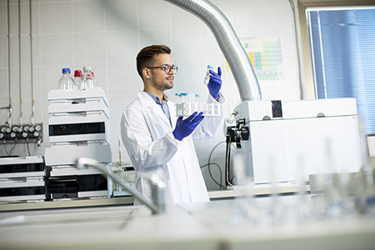More Flexibility At Reduced Costs With Protein A Membrane Technology
By William C. Barrett, Ph.D., and Doug Puzia Gore PharmBIO Products

With the ever-increasing financial pressures of developing and manufacturing a new drug, finding new ways to reduce risks and costs is more important than ever. One area that continues to frustrate antibody-based drug manufacturers is the cost of resin usage during bioprocessing. Because it has been performed using the same packed bed column-based approaches for almost 50 years, many consider protein A affinity resin chromatography as an unalterable part of the process. However, it’s time to look at how new protein A technologies may replace resin-based methods and enable more productive and flexible purification.
New membrane-based protein A affinity chromatography devices can be used for single-use purification of monoclonal antibody-based therapies, making it possible to greatly reduce the risks and costs that come with storing resin. These devices can be rapidly cycled through their lifetime using a smaller column in similar unit op times, realizing significant efficiency and cost advantages when applied in clinical manufacturing and/or flex manufacturing facilities for more targeted precision therapies.
Get unlimited access to:
Enter your credentials below to log in. Not yet a member of Bioprocess Online? Subscribe today.
